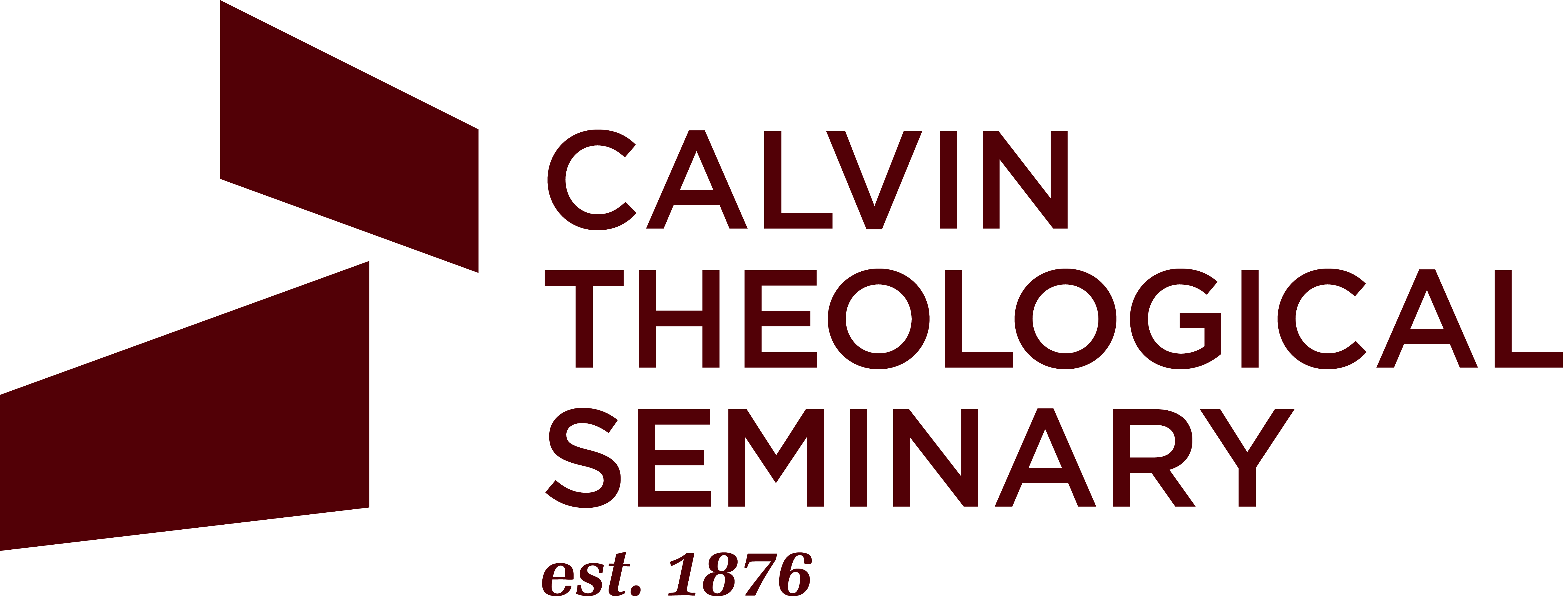Master of Theological Studies (MTS)
Our Master of Theological Studies Program
Why complete your MTS at Calvin Theological Seminary? Here, you are empowered to:
- Pursue your love of theology through a focused and reputable master’s degree
- Further your ministry with an extensive background in biblical and Christian studies, from an engaging Reformed perspective
MTS Degree Courses & Credit Hours
The MTS program encompasses 55 credits and takes two to three years to complete.
The process of spiritual formation is intentionally engaged so that habits developed through theological education will form students holistically for ministry. [Part 1 or 2, when taking it over two semesters.]
The process of spiritual formation is intentionally engaged so that habits developed through theological education will form students holistically for ministry. [Part 2 of 2 when taken over two semesters.]
Introduces students to fundamental elements of New Testament Greek grammar and basic function of the parts of a Greek sentence, and provides understanding of Greek morphology and its significance for exegesis.
Introduces Greek grammar, vocabulary, and syntax (building on 301) and the reading of the Greek New Testament, with emphasis on the use of Bible software as well as the exegetical application of the genitive case, adverbial participles, and conditional sentences.
This course begins preparing students to use biblical Hebrew in ministry by means of instruction in vocabulary, grammar, syntax, and elementary exegesis beginning with the basics of the Hebrew alphabet and pronunciation to the initial introduction to the Qal verb stem.
This course continues preparing students to use biblical Hebrew in ministry by resuming the instruction in vocabulary, grammar, syntax, and exegesis that began in 301. In this course, students will learn the remaining Hebrew verb stems and continue to sharpen their exegetical skills.
This course introduces students to the theology and message of the Old Testament. Emphasis falls upon the Old Testament as a witness to the Missio Dei, Israel’s covenantal vocation, as well as on fundamental theological themes like covenant, divine presence, kingdom, and eschatology. The course will also introduce students to the Old Testament’s literary shape and general historical setting. Finally, the ‘Mission of God in the Old Testament’ encourages students to articulate the OT’s importance for ministry and theological thinking in the context of the Church.
We will survey the grand story of the missio Dei in the New Testament. We will explore the mission of God to redeem and restore God’s fallen world, including themes such as the image of God, covenant, blessing, suffering, community, and shalom. We will make connections to contemporary ministry issues such as creation stewardship, self-identity, gender relations, anti-racism, immigration, economic justice, etc.
Interpreting the Old Testament OR Interpreting The New Testament (3)
The Story of Christianity I OR The Story of Christianity II (3)
Systematic Theology I OR Systematic Theology II (3)
MTS Capstone (1)
One of the core Interpreting the Bible courses (3)
One of the core Systematic Theology courses (3)
One of the core Story of Christianity courses (3)
Ethics and the Christian Life trains students in a Christ-centered understanding of the moral life, which it presents as the practice of following Christ in obedience, love, service and suffering, as individuals and as the church, witnessing to the gospel in every area of life. It prepares students to practice, teach, and apply this Christ-centered ethic in various contexts of ministry.
This course introduces a foundational theology and essential practices that guide Christian engagement with people of other cultures and religious communities. The complex and interwoven nature of culture and religion is explored from a biblical-Reformed theological perspective. Students are taught to honor the goodness of creation and the dignity of the image of God across people groups, cultures, and religions. Special attention is given to religious experience, tradition, and ritual practices through the lenses of general revelation and Scripture. Students engage in Christian practices of receptive humility and reflective commitment which honor the universal common humanity of God’s image bearers while upholding the unique and universal salvific significance of Jesus.
ThM Research Methodology (3) — Residential students only (3)
Independent Study (1–3) (3)
Elective Courses (19)
On Campus & Online
Residential students can complete their studies in two years at the Grand Rapids campus. They will be able to attend weekly chapels, participate in club activities, and interact with peers on a daily basis. Our three-year distance learning options maintain the same high quality of education as our residential program. Taking approximately three courses per semester, distance learning students may a) engage in a hybrid model of learning, completing much of their work online and traveling to campus twice a year for five-day intensives, or b) work fully online toward their degree.
Reformed Tradition
Calvin Theological Seminary is rooted in Reformed theology and welcoming to students of all Christian backgrounds. Here you will learn about the Reformers and how they shaped the church. If you’re Reformed, please join us. If you’re not Reformed, please join us. The church is stronger together.
Vocational Formation & Contextual Learning
MTS students are invited to use the resources of the Vocational Formation Office—from church and ministry connections, to spiritual and vocational tools for growth and assessment.
Finishing Your Master of Theological Studies Program
How Long Does It Take to Receive an MTS Degree?
The 55-credit MTS program takes two years for residential students and three years for hybrid distance students to complete.
Program Outcomes
The MTS is designed to prepare you for further academic study and careers that are enriched by a strong theological education.
How to Apply
The MTS application process helps the seminary to learn more about you and your goals for the program. We accept applications year-round and would love to see yours today.
The seminary’s faithful community of supporters ensures that tuition reduction is available for all of our students. Many also receive scholarship support to make their seminary goals a reality.
Application Requirements
Admission Deadlines
Applications are generally accepted on a rolling basis, but international students are encouraged to apply as early as possible to coordinate travel and immigration logistics.
The following are general application deadline guidelines:
Fall Term
- July 1: North American Applicant Deadline
- June 1: International Student Deadline
- March 1: Apply for this date to be considered for the first round of scholarship awarding. Note: If you miss this date it doesn’t necessarily mean you won’t receive a scholarship, but you may miss the first round of awarding.
Spring Term
- November 15
Summer Term
- April 1
Frequently Asked Questions (FAQs)
Apply Now
The MTS journey is rich and rewarding. Why not begin your journey today through our guided application?
Get to Know Calvin Theological Seminary

Meet Your Faculty
Faculty at Calvin Theological Seminary carry out the seminary’s mission as inspiring thought leaders, invested teachers and mentors, and committed followers of Christ.

Student Stories
Past graduates have applied their learning to a variety of ministry-based opportunities. Here are some of their stories.

Academic Support
In addition to contextual learning, the Vocational Formation Office offers students other forms of support, including formation groups with peers, vocational mentors, and assessment tools to help students identify and cultivate their strengths.
